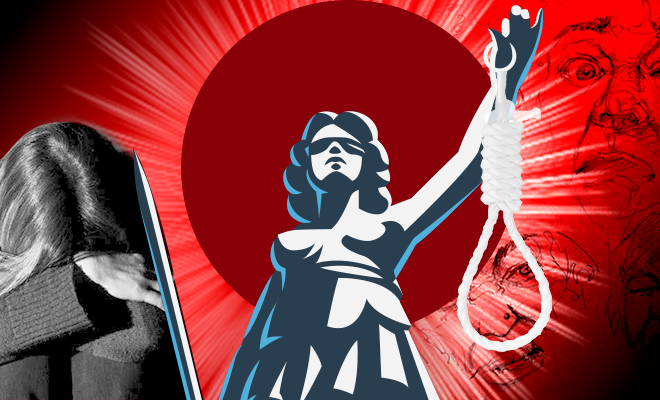
Introduction
Fairy tales make you dream. They provide an aspiration of a loving soulmate, a perfect family and a happy ending. Horror stories on the other hand, instill fear in our minds. The events that took place on the fateful night of December 16, 2012 in New Delhi, the capital city of India shaped one such horror story that no Indian can forget. Jyoti Singh, a 23-year-old medical intern was brutally gangraped in a moving bus. She succumbed to her injuries a fortnight later. The brutality of the attack quickly caused a nationwide outrage demanding immediate justice. They transferred the case to the fast-track court. They tried one of the convicted males in the juvenile court as a minor and charged the remains fine with with sexual assault and murder. Not long after, one of the accused died in police custody due to a suspected suicide. On September 10, 2013, the final four were found guilty and sentenced to death three days later.
Justice: Far From The Finish Line
You’d think this would count as a successful outcome. Well it would, if they executed the charges. However, the defense lawyers filed numerous review petitions and appeals for each convict individually extending the case by seven years. The execution date of the death warrant was January 22, 2020. Although having exhausted their mercy pleas with the Delhi court, the defendants still had a way out. One of the convicts wrote a mercy plea to the President of India. The president rejected it right a way, but they set a mandatory 14- day gap until the next execution date. As the second date came closer, another convict wrote a mercy plea. This caused another delay. Moreover, this resulted in an adjournment “sine die’ which postponed the execution date setting indefinitely.
The defense lawyers have been using every justifiable legal loophole in the book to prolong this case. For example, the mercy pleas were filed separately because this increased the limit to the number of petitions filed by a factor of four. A public prosecutor for the prison holding these men contested that the convicts be hanged separately. However, the court had to reject it, since it is against the law while there are pending legal matters. The law states that the convicts of a single case cannot be hanged individually in equal interest of all parties. It is ironic how these men still have a legal right to Article 21 – “Right to Life and Personal Liberty” when they so easily took one and destroyed many others.
The obvious scapegoat
At face value, it would be simple to blame the broken justice system and its affiliates. This would be unfair since the justice system of any country is ever evolving. Those who are trying to improve it must do so while keeping it functional. In this case, the state has to settle all pending legal procedures. the convicts their right to exhaust all their legal options is abuse of power.
The justice system is under duress. The judges are facing the scrutiny of a public who is mourning a loss. The convict’s lawyers are slamming petitions after petitions. This adds on to the already huge backlog of cases that are pending in the court system. There are several contributors to this inefficiency: the inadequate number of judges in the system and the dire lack of funds to name a few. Furthermore, the backlog of cases results overpopulated prisons that require high maintenance, creating a sunk cost for taxpayer money. Prisons in India required a budget of almost 55 billion rupees between 2016 and 2017, a large portion of which went into running the establishments themselves. This is a vicious cycle where resources are not sufficiently allocated to make improvements to the system because they are being drained into the ineffectual parts.
Defense’s Rationale?
The lawyers on both ends have been fighting tooth and nail to support their parties. However, from a personal standpoint, I seriously question the ethics of the continuance of this case. It is not practical to prolong a case whose guilty verdict was announced several years ago. Defense lawyers using delaying tactics that have wasted resources, time and energy of all parties involved. AP Singh, the lawyer who represents three of the convicts, is calling this capital punishment an act of violence, quoting Gandhi in doing so. The statement sounds almost ironic when it is justifying a crime so barbaric.
Nirbhaya: The Fearless One
People named her Nirbhaya – “the fearless one” as she fought for her life. Her parents have been fighting for her justice for seven years now. I commend their resilience in this broken system. However, it is high time they get their peace. The parents have been suffering the consequences for the crimes committed by six men over a decade ago. In an alternate reality, they would have been celebrating their daughter becoming a doctor.
This incident has broken grounds for a country-wide social movement. It led to the establishment of organizations, such as Sayfty, that fight for women empowerment and security. There are many legal loopholes in this case. Nevertheless, instances such as these create room for improvement. For better victim protections, laws need amendment. There must be a limit on the number of pleas a convict can file to all authorities. Exception clauses to laws that allow a judge or an impartial panel of judges to make a decision under extenuating circumstances. Changes must be made before people take matters into their own hands. For instance, in the city of Hyderabad, a police officer shot dead four men convicted of rape and murder. People have lost faith in the justice system. To regain their trust, the judiciary must take some serious steps.
This must start with justice for Nirbhaya.

About The Author
Deepa Chandrachud recently completed her Bachelor’s degree in Finance from Bentley University. She is deeply passionate about gender equality and hopes to use this platform to create more awareness about issues pertaining to women’s rights.
Some other blog posts you might like:
Image Source: